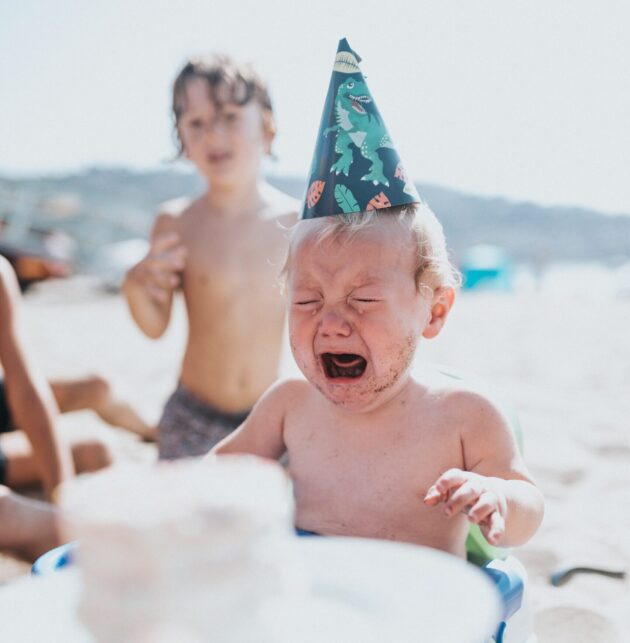When Should Babies Start Wearing Shoes?
A common question among new parents is, “When should babies start wearing shoes?” The right time to introduce shoes to a baby’s feet is crucial for proper foot development and overall child’s health. This blog post will guide you through the important considerations for choosing and timing baby shoes.
The Developmental Stage
Babies typically begin to take their first tentative steps around their first birthday. This stage of movement is crucial for developing muscle strength and sensory input through the soles of their feet. At this point, baby’s feet are still very delicate, with baby’s bones being soft and pliable. For this reason, it’s beneficial for babies to spend as much time as possible in bare feet. This natural movement helps their little feet develop properly.
The Right Time for Baby Shoes
The best time to introduce baby’s first pair of shoes is when they start walking outdoors. Inside the house, although there are many soft-soled ‘first shoes’ on the market for even very young babies, bare feet, or socks are the best option! This allows the child’s feet to develop without restriction. When they are old enough to start venturing outside on two feet for the first time though, it’s a good idea to protect their feet from sharp objects and rough surfaces with their first pair of proper shoes.
Choosing the Right Type of Shoes
When the time comes to buy baby shoes, there are several factors to consider:
Soft-Soled Shoes: For new walkers, soft-soled shoes are ideal. They provide protection while allowing flexibility and natural movement. Soft shoes mimic the sensation of walking barefoot, which is beneficial for a baby’s foot development.
Flexible Soles: As your child progresses, choose shoes with flexible soles that bend easily. This flexibility supports the child’s development by allowing the muscles in their feet to strengthen properly.
Proper Fit: Ensure the shoes fit well. The right size should have enough room at the front of the shoe for the child’s toes to move freely. Avoid tight shoes, which can restrict movement and impede proper development.
Supportive Shoes: While hard-soled shoes or high-topped shoes can offer support, they should not be inflexible. The best walking shoes for small children provide support without being too rigid.
Pram Shoes: For non-walking babies, pram shoes can keep their feet warm without affecting foot development.
The Purpose of Shoes
The primary purpose of shoes at this stage is to protect a child’s foot from the environment, such as rough surfaces and sharp objects. For everyday wear indoors, the next best thing to bare feet is soft-sole shoes, which provide protection while still allowing natural foot movement.
Medical Advice and Children’s Podiatry Specialists
If you have concerns about your child’s feet or their development, it’s always best to seek medical advice. Children’s podiatry specialists can provide guidance on the best shoes and any potential foot health issues. The NHS has provided some helpful guidance on identifying potential problems with young children’s legs and feet:
https://www.nhs.uk/conditions/baby/health/leg-and-foot-problems-in-children/
Fitted Footwear and Proper Foot Development
When buying baby’s first shoes, it’s wise to visit a shoe shop specializing in children’s footwear. They can measure your child’s feet accurately and ensure you find the best fit. A good rule of thumb is to check the fit regularly, as children’s feet grow quickly, and they may need new shoes every few months.
When a Small Child Won’t Keep Their Shoes On…
Many parents are excited to present their baby or toddler with their first pair of proper shoes, only to find that they keep taking them off or refuse to wear them at all! This may be a sign that the child simply isn’t ready for shoes, and may be happier continuing to spend most of their time in socks or bare feet. While this isn’t a problem indoors, shoeless children can pose more of a problem outside. Sometimes it’s safe for small children to go barefoot or just wear socks outdoors, but when this just isn’t practical, a pair of showerproof ‘booties’ such as this pair from JoJo Maman bébé can work well. These ones are fleeced lined to keep little toes cosy in winter and the elasticated cuffs and velcro straps make them less likely to fall off (or be pulled off!):

A Gift Card for Baby Shoes
If you’re unsure about the size or type of shoes to buy for a very young child as a present, a gift card to a reputable shoe shop can be a thoughtful and practical gift for parents. Young children grow out of shoes so quickly they will probably be very grateful!
Conclusion
The right time for a baby to start wearing shoes is when they begin walking outdoors. Opt for soft-soled, flexible, and well-fitting shoes to support your baby’s foot development. Remember, bare feet are best for indoor use to encourage natural growth and muscle strengthening. Always consult with medical professionals if you have concerns about your child’s feet to ensure the best care for their delicate and rapidly growing feet.
Links and resources
https://www.johnlewis.com/content/baby-children/first-shoes
https://www.nhs.uk/conditions/baby/health/leg-and-foot-problems-in-children
More Posts from Enjoy Every Minute You Might Find Useful
https://enjoyeveryminute.co.uk/2024/05/03/is-it-okay-to-let-my-child-play-with-my-smartphone/


